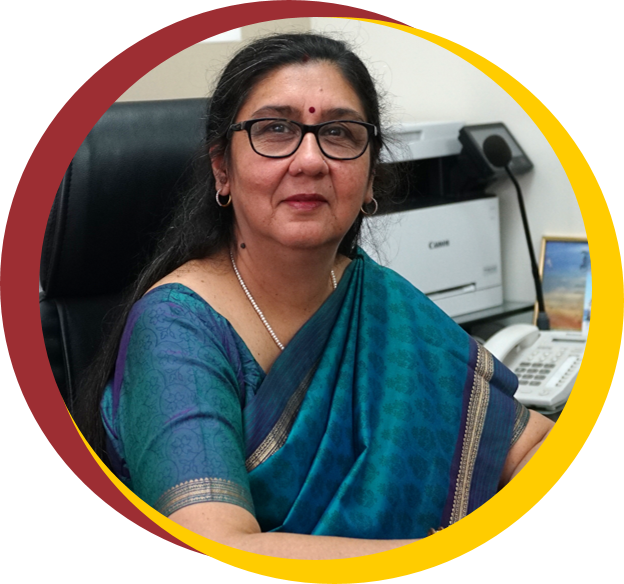 – Radhika Sinha, Principal, Aditya Birla World Academy
– Radhika Sinha, Principal, Aditya Birla World Academy
School is a place where students learn the initial lessons of life. Within the precincts of a safe environment, children experience, moments of joy, challenges, achievements, failures, and disappointments, all of which have a lasting impact on their future. However, there has been a paradigm shift in the way we look at the teaching-learning process. The hybrid school model and a dynamic style of synchronous and asynchronous blended learning is here to stay. Before we realized… the new normal has become ‘the normal’ for the times to come.
Increased focus on emotional and mental wellbeing
Our future is shaped by the generation that stands strong mentally and physically. Amid uncertainty and a stressful event like the Covid-19 pandemic, some children develop more intense reactions of anxiety, depression, or behavioral problems. While this can happen to any child, it is important to know that there are some children who are at higher risk as they may have had significant losses or may have experienced traumatic events. Children in this group may need even more consistency with routines, sleep schedules, emotional support, and reassurance about the outbreak. It is imperative for them to get a support for their mental well-being and at the same time, empower them to deal with change by accepting it the way it is. It is important to teach them coping strategies and instill psychological characteristics such as engagement, perseverance, resilience, optimism, connectedness, and happiness. With an increased focus on emotional and mental wellbeing, we create a scaffold for children so that they emerge from this experience as a resilient generation.
Rise in focus on extra-curricular activities
As per the educational philosophy, teaching students to be lifelong learners is important. Education today, is not just limited to classrooms or textbooks. Participation in extra-curricular activities provides students an opportunity to express their inner creativity and showcase their talent and skill in the areas of interest. Creativity, pro-social skills, problem-solving, conflict resolution are some of the skills that one develops through play. Extra-curricular activities create opportunities to communicate, developing skills of negotiation and patience in children. It also teaches students to work as a ‘unit’ and be team players.
Personalized learning
In the era of personalized learning, the term ‘New School’ means forward-thinking, where Text-Books and Teachers-Knowledge is not the complete collection of facts or documented knowledge, required for learning. Unlike the old way where a teacher would deliver his/her class with limited facts from a textbook. Teachers are an extremely important part in any education system, but with a difference. Teachers are facilitators who stimulate and nudge students to think and research facts from the vast knowledge-base ‘The Internet’. Flipping a Classroom is a great concept in the New School Model, where students gain first exposure to learning prior to the class. The processing part of learning, that is synthesizing, analyzing and problem-solving happens during the class. This model teaches students to develop research skills, which will help them evolve into life-long-learners.
Use of digital technologies for learning
Technology has transformed the education sector to a larger scale and will continue to do so. Tech integration in the teaching-learning process has become a ‘way of life’ and also the need of the hour. New and innovative approaches to teaching by integrating technology in the classroom offers multiple benefits. With planning and creativity, digital technology can be used to create meaningful learning experiences. This will serve the students as well as instructors. Incorporating interactive and gamified digital platforms like NearPod, Peardeck, Kahoot, Quizizz, Edmodo, Padlet, VoiceThread, FlipGrid, Edpuzzle, Coggle, Flippity, Socrative to name just a few tools, provide the much needed learner engagement. When students leave the classroom to enter the real world, adapting to the use of technological tools will be an integral part of their professional lives. For educators, imbibing technology has become an irreplaceable professional tool. Due to its everyday use, technology has become its own form of literacy. Allowing students to learn and refine these skills prepares them for life beyond the classroom.
Also read: Trends that will give edtech a quantum leap in India in 2021
The views, thoughts, and opinions expressed in the article belong solely to the author, and not necessarily reflect the views, thoughts, and opinions of EducationWorld.



























